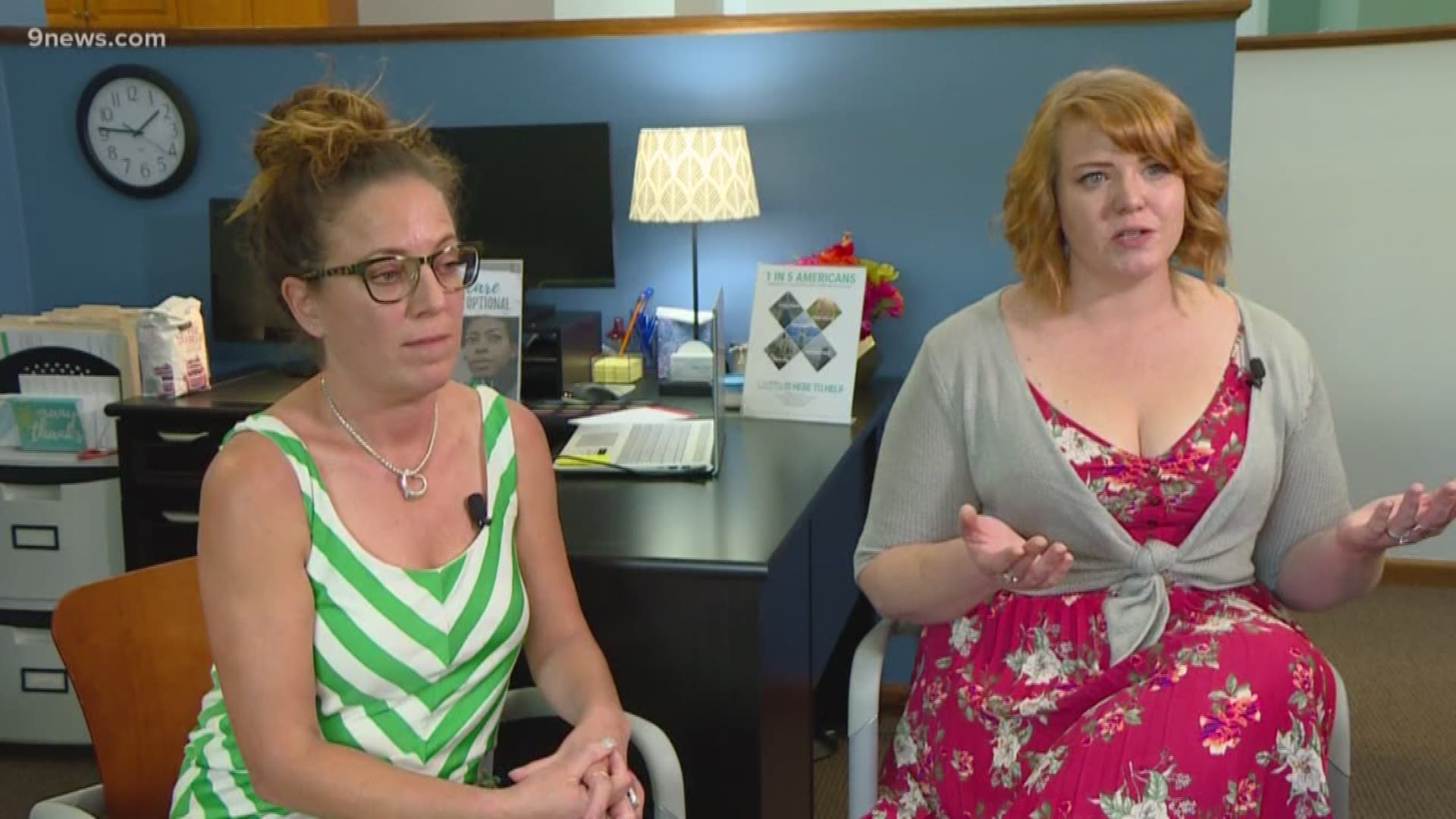DENVER — In the wake of mass shootings in El Paso, Texas and Dayton, Ohio, President Donald Trump called for reform to mental health laws while suggesting "mental illness and hatred pulls the trigger, not the gun."
During his remarks from the White House Monday morning, Trump offered support for red flag laws like the one passed in Colorado, and stressed the importance of improving school safety and background checks for firearms purchases.
Groups like the American Psychiatric Association, however, condemned linking mental illness to the series of shootings over the weekend.
"It is important to note that the overwhelming majority of people with mental illness are not violent and far more likely to be victims of violent crime than perpetrators of violence," read a statement posted on the APA website.
"Rhetoric that argues otherwise will further stigmatize and interfere with people accessing needed treatment."
Mental health advocates from Colorado Mental Wellness Network spoke to 9NEWS Monday about the stigma surrounding mental health and tragedy.
CMWN is a peer-run organization whose staff have experience with mental health and/or substance abuse.
Executive Director Hope Hyatt and advocacy and Outreach Coordinator Aubrey Boggs sat down with 9NEWS Monday afternoon.
(Editor's note: Responses have been edited for context and clarity.)
9NEWS: How do you respond to comments linking mental health and violence?
Boggs: Mental health conditions are an easy scapegoat, and honestly, a lot of times it's the media that perpetuates the idea that violence is connected with mental health...In fact, people with mental health conditions are 10 times more likely to be victims of violence and are not any more likely to be perpetrators of violence than anyone else.
How might linking mental health and violence impact someone living with a mental health condition?
Hyatt: It’s even furthers the stigmatizing of folks with mental health conditions in preventing them and deterring them from getting the help and support that they need.
Boggs: I think it’s reasonable that someone might not want to seek help in that situation because they know how they’re going to be viewed.
What should the mental health conversation be after a mass shooting?
Boggs: These events are traumatic. The mental health we need to be talking about is how do we support people who are witnessing these things, who are losing family members – even just seeing it on the news. It is traumatic for everyone.
What resources are available to Coloradans looking for help?
Boggs and Hyatt pointed us to coloradosupport.org.
Boggs: People can search with multiple drop down menus for specific support around things like specific conditions, domestic abuse support, LGBTQIA specific support, and more. No data is gathered to keep the search safe and private for those who use it.
We also have lots of info on our website that might be helpful for folks: coloradomentalwellnessnetwork.org
SUGGESTED VIDEOS | Next with Kyle Clark
.

